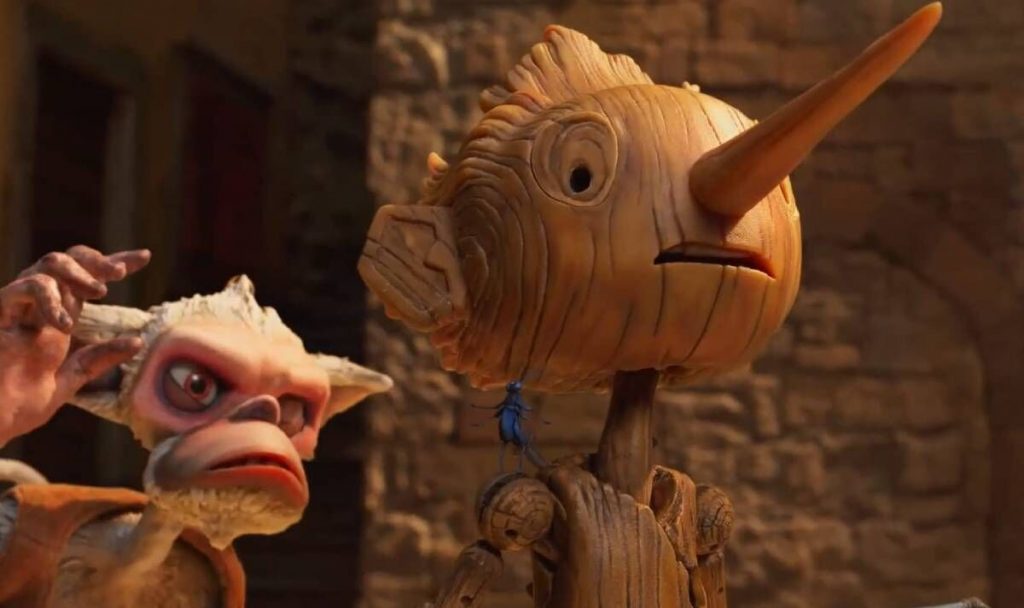
Horror maestro Guillermo del Toro is now famous enough for his own easily misspelled name to appear alongside Pinocchio’s in the title. And this offbeat stop-motion animation could only have come from the Mexican’s unique imagination.
In terms of cutesiness, this one falls somewhere between the other two, being less scary than the 2020 film starring Roberto Benigni but far less saccharine than this September’s Disney+ version with Tom Hanks.
Like del Toro’s Pan’s Labyrinth, the fantasy is rooted in history, with Mussolini’s fascist Italy replacing Franco’s fascist Spain.
A storm is raging as drunken, heartbroken carpenter Geppetto (David Bradley) tries to hack out an image of his dead son from pine in 1930s rural Italy.
And there are more flashes of Frankenstein when the misshapen creature is brought to life by Tilda Swinton’s sympathetic wood sprite. The loose-limbed Pinocchio (Gregory Mann) is born with a manic intensity, creating chaos as he explores the workshop and questions every object.
The locals think he’s an “abomination”, Ron Perlman’s local fascist sees an indestructible soldier while Geppetto wishes he could be as well behaved as his dead son.
When Pinocchio runs away to join a travelling circus, his ‘father’ and cricket guardian (Ewan McGregor) desperately try to track him down.
There are some wonderful surreal creatures, a smattering of songs and moments of heartbreaking poignancy.
As in the Disney version, Pinocchio must learn the importance of honesty and respect. But, here, disobedience is a virtue too.
When leaders need their citizens to be unthinking puppets, an unruly wooden boy feels like the most human of us all.

 Latest Breaking News Online News Portal
Latest Breaking News Online News Portal




